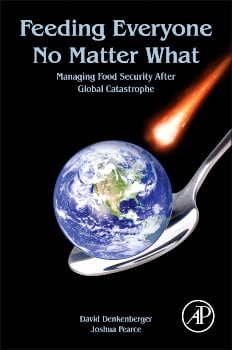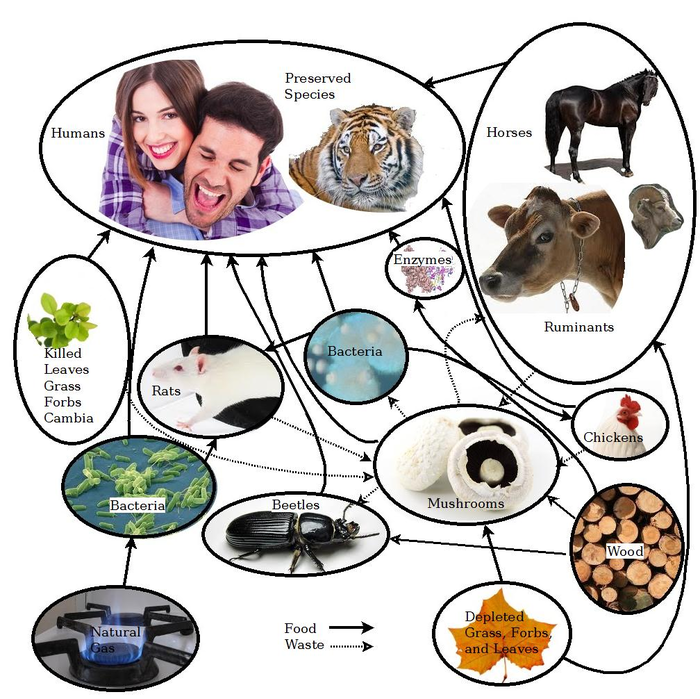J.M.Pearce (talk | contribs) m (→In the News) |
J.M.Pearce (talk | contribs) |
||
| Line 166: | Line 166: | ||
* [http://www.bestanüçe.com/haber/151866/olasi-gida-krizine-karsi-ilginc-oneriler&dil=tr Olası gıda krizine karşı ilginç öneriler] - "Interesting proposals against a possible food crisis" Bestanüçe | * [http://www.bestanüçe.com/haber/151866/olasi-gida-krizine-karsi-ilginc-oneriler&dil=tr Olası gıda krizine karşı ilginç öneriler] - "Interesting proposals against a possible food crisis" Bestanüçe | ||
* [http://dogunews.com/olasi-gida-krizine-karsi-ilginc-oneriler-32280.html Olası gıda krizine karşı ilginç öneriler] "Interesting proposals against a possible food crisis" - Dogu News | * [http://dogunews.com/olasi-gida-krizine-karsi-ilginc-oneriler-32280.html Olası gıda krizine karşı ilginç öneriler] "Interesting proposals against a possible food crisis" - Dogu News | ||
United Kingdom | |||
* [ http://www.gizmodo.co.uk/2014/12/how-wed-feed-ourselves-after-the-apocalypse/ How We'd Feed Ourselves After the Apocalypse] - Gizmodo UK | |||
[[Category:MOST completed projects and publications]] | [[Category:MOST completed projects and publications]] | ||
Revision as of 14:02, 19 December 2014
| Feeding Everyone No Matter What |
|---|
Error in widget YouTube: Unable to load template 'wiki:YouTube' |
Feeding Everyone No Matter What: Managing Food Security After Global Catastrophe
- David Denkenberger and Joshua Pearce, Feeding Everyone No Matter What: Managing Food Security After Global Catastrophe , 1st Edition, Academic Press, 2015 (Nov 2014 in print).
- Free Preview: Google books
- Cover on Academia
- Facebook page
Description

Feeding Everyone No Matter What presents a scientific approach to the practicalities of planning for long-term interruption to food production.
The primary historic solution developed over the last several decades is increased food storage. However, storing up enough food to feed everyone would take a significant amount of time and would increase the price of food, killing additional people due to inadequate global access to affordable food. Humanity is far from doomed, however, in these situations - there are solutions.
This book provides an order of magnitude technical analysis comparing caloric requirements of all humans for five years with conversion of existing vegetation and fossil fuels to edible food. It presents mechanisms for global-scale conversion including: natural gas-digesting bacteria, extracting food from leaves, and conversion of fiber by enzymes, mushroom or bacteria growth, or a two-step process involving partial decomposition of fiber by fungi and/or bacteria and feeding them to animals such as beetles, ruminants (cows, deer, etc), rats and chickens. It includes an analysis to determine the ramp rates for each option and the results show that careful planning and global cooperation could ensure the bulk of humanity and biodiversity could be maintained in even in the most extreme circumstances.
Key Features
- Summarizes the severity and probabilities of global catastrophe scenarios, which could lead to a complete loss of agricultural production
- More than 10 detailed mechanisms for global-scale solutions to the food crisis and their evaluation to test their viability
- Detailed roadmap for future R&D for human survival after global catastrophe
Readership
Researchers, professionals and students in food security, food engineering, disaster management and public health, preppers
Table of Contents
- Introduction
- Worldwide Crop Death: The Five Crop-killing Scenarios
- No Sun: Three sunlight-killing scenarios
- Food Storage, Food Conservation, and Cannibalism
- Stopgap Food Production: Fast food
- Fibre Supply for Conversion to Food
- Solutions: Stored Biomass/Fossil Fuel Conversion to Food
- Practical Matters: Energy, Water, Nutrition, Taste, Biodiversity, & Cooperation
- Moral Hazard
- Serious Prepping: A Guide to Necessary Research

Supporting Publications
- Joshua M. Pearce and David D. Denkenberger, Life After Global Catastrophe: How Do We Feed Everyone? , SciTechConnect. November 24, 2014.
- Joshua M. Pearce and David D. Denkenberger, 10 ways to feed ourselves after a global agricultural collapse - Elsevier Connect, Dec. 9, 2014.
Praise for Feeding Everyone No Matter What
- "This book lays out the agenda for a new research field: how to feed the world in the event of a global catastrophe. This could be the most important research we hope never to have to use. Denkenberger and Pearce take a hard-nosed look at where we could turn for food in the event of the collapse of agriculture. Their ideas are innovative and striking, and surely worthy of further development." -- Robert Wiblin | Executive Director | The Centre for Effective Altruism, housed in University of Oxford
See Also
Discussion
Media
- KMO talks to Global Catastrophic Risk Institute researcher, Dr. David Denkenberger - KMO podcast listen
- Feeding-everyone-no-matter-what HMONG HUB music video online
- Feeding Everyone No Matter What Alkeenana News channel
In the News
- Bacterial Slime: It's what's for Dinner (After a Catastrophic Crop Failure) - MTU News, Eureka Alert, Newswise, Bioportfolio
- Bacterial slime: It's what's for dinner - Science Daily, Indian Daily, Daily Me, Lab Manager Magazine, All About Microbiology
- Bacterial slime may be survivalist solution to catastrophic crop failure - Phys.org
- 10 Foods You Could Eat After a Global Catastrophe - Discovery News
- Bacteria and Bugs Could Help Humans Survive Food Shortage- Nature World News
- Managing food security after global catastrophe- News Medical
- Surviving Global Disasters May Mean Eating Slime - Mysterious Universe
- Bacterial slime: It’s what’s for dinner - The Global Fruit
- Overnight News Digest: Science Saturday - Daily Kos
- We'll be Supping on Slime in the food apocalyse - Science Made Easy
- Bacterial slime or what to feed the world after catastrophic crop failure - Food Processing (Australia)
- New Book Offers Food Source Options For Catastrophic Scenarios - BetaWired
- Elsevier Expands Food Science Portfolio With Seven New Books - CNN Money, Street Insider, Broadway Book World
- Bacterial Slime – Supper for the Survivalist - Net News Ledger
- Bacterial slime could feed the world after a catastrophic crop failure- RyPul Threat Assessments
- Feeding Everyone No Matter What - Frequency (vid)
- Bacterial Slime: It's What's for Dinner - Wisconsin Ag Connection, Win 98.5. WTVB-AM
- Food news for Thanksgiving 2014 - Crazy Eddie's (blog)
- Bacterial Slime: It’s what’s for Dinner (After a Catastrophic Crop Failure) - Innovation Toronto
- Finding food after a disaster - Mining Gazette
- Finding food after a disaster - Food Industry Today
- After The Apocalypse, This Is What We'd Eat - Refinery 29
- How We'd Feed Ourselves After The Apocalypse- PaleoFuture Gizmodo
- After The Apocalypse, This Is What We’d Eat BUZZFEED Community
- Here’s What We’d Eat at the End of the World - RYOT
- What to Eat After the Apocalypse - Nautilus
International Press
| US Nuclear Stockpile Safety |
|---|
Error in widget YouTube: Unable to load template 'wiki:YouTube' |
Australia
- How We'd Feed Ourselves After The Apocalypse - Gizmodo Australia
Canada
- Bacterial Slime: It’s what’s for Dinner (After a Catastrophic Crop Failure) - Innovation Toronto
Chinese
- 细菌粘液——世界末日之人类的粮食 "Bacterial slime - end of the world human food" Labbase (China)
Dutch
- Wat eten we? Bacterieslijm! - "What do we eat? Bacterial Glue!" MSN Nieuws (Dutch)
- Wat eten we? Bacterieslijm! - "What do we eat? Bacterial Glue!" FAQT (Dutch)
Estonia
- E-book: Feeding Everyone No Matter What: Managing Food Security After Global Catastrophe - Krisostomus (Purchase Book)
German
- Leben nach der globalen Katastrophe - Wie Bakterienschleim die Menschheit rettet - "As bacterial slime saves humanity" N-TV (German affiliate of CNN)
- Es gibt eine Lösung für den Hunger auf der Welt – aber sie ist ziemlich eklig - "There is a solution to hunger in the world - but it's pretty gross" Huffington Post Deutschland
- Wissenschaft Leben nach der globalen Katastrophe: Wie Bakterienschleim die Menschheit rettet [Science] life after a global catastrophe: how bacterial slime saves humanity - My Gully
Greek
- Τι θα τρώμε μετά από μία παγκόσμια καταστροφή- "What you eat after a global catastrophe" Neakriti.gr
- Τι θα τρώμε μετά από μία παγκόσμια καταστροφή - "What you eat after a global catastrophe" KPNTN
Macedonian
- Храна за сите во случај на глобална катастрофа - "FOOD FOR ALL IN CASE OF GLOBAL CATASTROPHE"Fakulteti
- Feeding Everyone No Matter What Daily Macedonia
- Храна за сите во случај на глобална катастрофа Food for all in case of global catastrophe EHAYKA.MK
Portuguese
- Que tal um mingau de bactérias para o jantar? - "How about a porridge of bacteria for dinner?" Planeta Sustentável
Russian
- Ужин будущего - тарелка бактериальной слизи - "Dinner future - a plate of bacterial slime" News.Open.By (Belarus)
- Feeding Everyone No Matter What - Rahva Raamat
- Чем питаться после глобальной катастрофы - Mag.org.ua
- Чем питаться после глобальной катастрофы What to eat after a global catastrophe
Spanish
- Diez alimentos que se podrían comer tras una catástrofe global - "Ten foods you might eat after a global catastrophe" RPP (Peru)
- Diez alimentos que se podrían comer tras una catástrofe global - "Ten foods you might eat after a global catastrophe" Entorno Inteligente (Venezuela)
Swedish
- Feeding Everyone No Matter What - Bokus books (Purchase Book)
Slovenian
- Feeding Everyone No Matter What: Managing Food Security After Global Catastrophe EMKA.SI Slovenian Book Store
Turkish
- Olası gıda krizine karşı ilginç öneriler - "Interesting proposals against a possible food crisis" Firat News
- Olası gıda krizine karşı ilginç öneriler - "Interesting proposals against a possible food crisis" Bestanüçe
- Olası gıda krizine karşı ilginç öneriler "Interesting proposals against a possible food crisis" - Dogu News
United Kingdom
- [ http://www.gizmodo.co.uk/2014/12/how-wed-feed-ourselves-after-the-apocalypse/ How We'd Feed Ourselves After the Apocalypse] - Gizmodo UK





